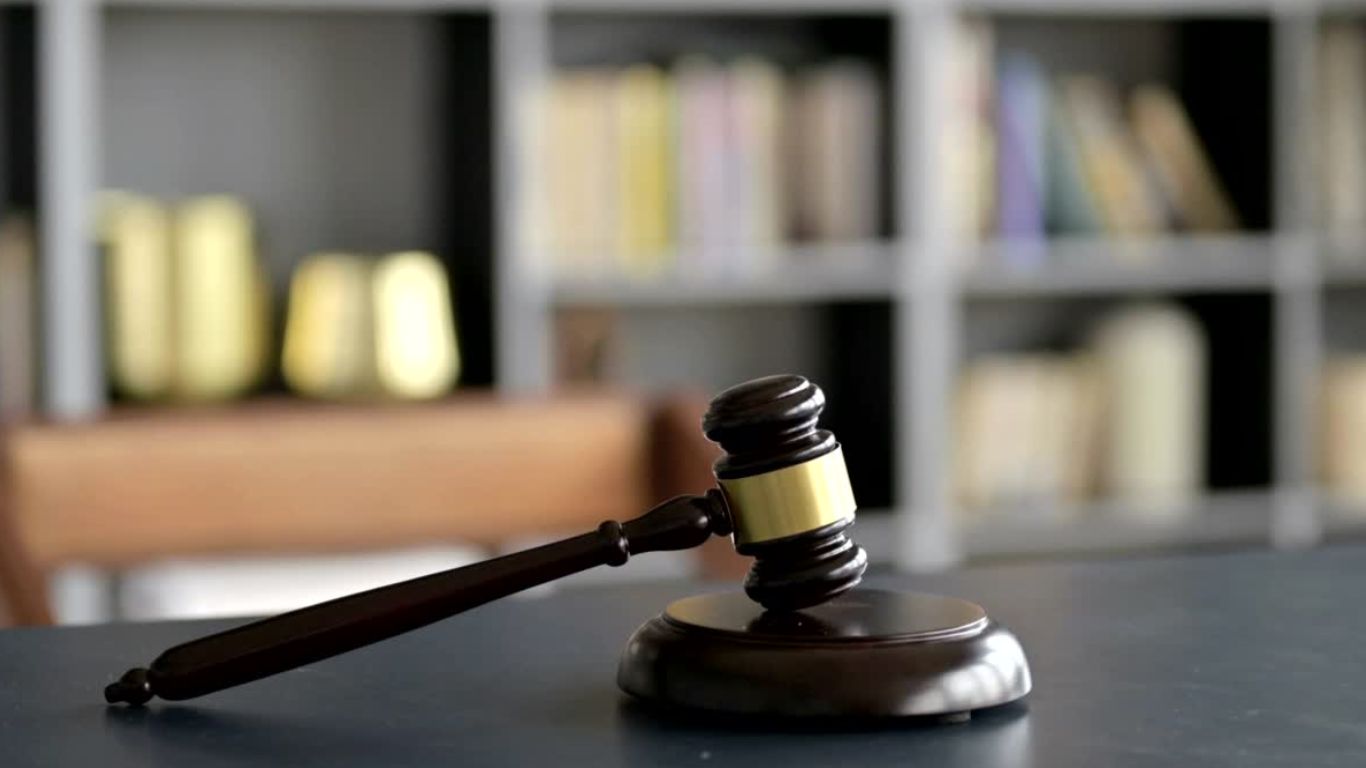How to Choose the Right Car Accident Injury Attorney: Key Questions to Ask

Hiring the right car accident injury attorney can significantly impact your case’s outcome. This article outlines key questions to ask potential lawyers, covering their experience, fee structures, case management, communication practices, legal strategies, and client testimonials. By asking these essential questions, you’ll be better equipped to choose an attorney who can effectively represent your interests and maximize your chances of a favorable resolution in your car accident case.
Key Takeaways
- -Evaluate an attorney’s experience, track record, and certifications in car accident cases
- -Understand legal fees, including contingency fees, upfront costs, and potential hidden charges
- -Determine who will manage your case and ensure personal attention from the attorney
- -Establish clear communication expectations and preferred methods with your lawyer
- -Review client testimonials, references, and professional awards to assess an attorney’s reputation
Assessing the Attorney’s Experience With Car Accident Cases
Assessing an auto accident attorney‘s experience with car accident cases is crucial when seeking legal representation for vehicle-related injuries. This evaluation includes examining their track record, years of practice, certifications, and knowledge of local traffic laws. Understanding these factors helps determine an attorney’s ability to navigate insurance policies, establish fault, and secure fair compensation for injuries.
Understanding Their Track Record in Similar Cases
Examining a personal injury lawyer‘s track record in similar cases provides valuable insights into their expertise and potential success rate. Clients should inquire about the attorney’s experience with cases involving traffic accidents, police reports, and negotiations with insurance companies. Additionally, understanding how the lawyer has handled Medicare-related issues in previous car accident cases can be crucial for clients with specific healthcare concerns.
Finding Out About Years of Practice in Personal Injury Law
An attorney’s years of practice in personal injury law provide valuable insight into their expertise and ability to handle complex car accident cases. Experienced lawyers possess in-depth knowledge of relevant laws, insurance policies, and legal procedures. They can efficiently navigate the intricacies of health insurance claims, road safety regulations, and policy interpretations. Clients should inquire about an attorney’s specific experience with car accident cases to ensure they receive the most effective legal representation:
- -Number of years practicing personal injury law
- -Percentage of cases focused on car accidents
- -Success rate in negotiating settlements
- -Experience with trial litigation for car accident cases
- -Familiarity with local traffic laws and regulations
Checking for Relevant Certifications or Specializations
Verifying an attorney’s relevant certifications or specializations is crucial when evaluating their expertise in car accident cases. Lawyers with specialized certifications demonstrate advanced knowledge in areas such as motor vehicle accidents, hit and run incidents, and motorcycle collisions. These qualifications indicate a deeper understanding of complex issues like calculating damages and navigating life insurance claims in the context of vehicle-related injuries.
Knowledge of Local Traffic Laws and Regulations
An attorney’s comprehensive knowledge of local traffic laws and regulations is essential for effectively handling car accident cases. This expertise enables them to navigate complex issues such as driving under the influence, auto insurance policies, and car accident insurance claims. A skilled lawyer understands the nuances of gathering and presenting insurance information to support their client’s case, ensuring that all relevant details are considered when pursuing an insurance claim.
Clarifying Legal Fees and Payment Structures
When hiring a car accident attorney in California, understanding legal fees and payment structures is crucial. This section examines contingency fees versus hourly billing, upfront costs, potential hidden charges, and payment plans. Clarifying these financial aspects helps clients make informed decisions about their car accident case and lawsuit representation.
Asking About Contingency Fees vs. Hourly Billing
When discussing legal fees with a car accident attorney, it’s essential to understand the difference between contingency fees and hourly billing. Contingency fees are common in personal injury cases, where the attorney’s payment is contingent on winning the case or securing a settlement. This fee structure can be beneficial for clients who may be facing medical bills and deductibles related to their health insurance. In contrast, hourly billing involves paying the attorney for their time, regardless of the case outcome. Clients should inquire about how these fee structures might impact their case, especially if law enforcement or a police officer from New Hampshire is involved:
- -Percentage of the contingency fee
- -Hourly rates for different types of legal work
- -Potential impact on settlement negotiations
- -Responsibility for case-related expenses
- -Payment terms for different fee structures
Understanding Who Will Manage Your Case
Understanding who will manage a car accident case is crucial when selecting an attorney. This section explores determining if associates or paralegals will handle the case, meeting the assigned legal team, ensuring personal attention from the attorney, and understanding the firm’s caseload and availability. These factors help clients assess the level of dedication and expertise their case will receive.
Determining if an Associate or Paralegal Will Handle Your Case
When evaluating a car accident injury attorney, it’s crucial to determine whether an associate or paralegal will handle the case. Clients should inquire about the specific team members who will be involved in their case management, including their roles and experience levels. Understanding the division of responsibilities within the legal team helps set realistic expectations for communication and case progression.
Meeting the Legal Team Assigned to You
Meeting the legal team assigned to a car accident case provides clients with valuable insights into the expertise and approach of the law firm. During this meeting, clients can assess the team’s communication style, experience with similar cases, and their understanding of local traffic laws. It also offers an opportunity to discuss the team’s strategy for handling insurance claims and negotiating with opposing parties, ensuring alignment between the client’s goals and the legal team’s approach.
Ensuring Personal Attention From the Attorney
Ensuring personal attention from the attorney is crucial in car accident cases. Clients should inquire about the attorney’s direct involvement in case management, communication frequency, and availability for consultations. This information helps assess the level of personalized service and expertise the client can expect throughout the legal process:
- -Attorney’s direct involvement in case strategy development
- -Frequency of attorney-client meetings and updates
- -Availability for urgent consultations or emergencies
- -Attorney’s role in negotiations and court appearances
- -Process for addressing client concerns and questions
Understanding the Firm’s Caseload and Availability
Understanding a law firm’s caseload and availability is crucial when selecting a car accident injury attorney. Clients should inquire about the firm’s current workload, average case duration, and response times for client communication. This information helps assess the attorney’s capacity to dedicate sufficient time and resources to the case, ensuring prompt and effective legal representation.
Evaluating Communication Practices
Evaluating communication practices is crucial when selecting a car accident injury attorney. This section examines setting expectations for updates, identifying preferred communication methods, learning about availability for questions, and establishing how clients will be informed of case developments. Understanding these aspects ensures effective attorney-client communication throughout the legal process.
Setting Expectations for Updates and Correspondence
Setting clear expectations for updates and correspondence is crucial when working with a car accident injury attorney. Clients should discuss the frequency and format of case updates, ensuring they align with their preferences and needs. Attorneys should provide a clear timeline for regular communication and outline their protocol for sharing significant case developments. This proactive approach helps maintain transparency and builds trust between the attorney and client throughout the legal process.
Identifying Preferred Methods of Communication
Identifying preferred methods of communication is essential when working with a car accident injury attorney. Clients should discuss their preferred modes of contact, such as email, phone calls, or text messages, and ensure the attorney can accommodate these preferences. Establishing a mutually agreeable communication protocol helps streamline information exchange and ensures clients stay informed about their case progress.
Learning About Availability for Questions and Concerns
Understanding an attorney’s availability for questions and concerns is crucial when evaluating communication practices. Clients should inquire about the attorney’s response time for urgent matters, regular office hours, and after-hours contact procedures. This information helps set realistic expectations for accessibility and ensures clients can reach their legal representative when necessary.
Establishing How You Will Be Informed of Developments
Establishing a clear protocol for how clients will be informed of case developments is essential when working with a car accident injury attorney. Clients should discuss the attorney’s process for communicating significant updates, such as settlement offers, court dates, or changes in case strategy. This ensures timely and efficient information sharing, allowing clients to make informed decisions throughout the legal process. Key aspects to consider include:
- -Frequency of scheduled case status updates
- -Protocol for communicating time-sensitive information
- -Process for sharing and reviewing important documents
- -Method for notifying clients of court appearances or deadlines
- -Procedure for updating clients on negotiations with insurance companies
Exploring the Attorney’s Strategy for Your Case
Exploring an attorney’s strategy for a car accident case is crucial for evaluating their approach. This section examines potential legal tactics, estimated timelines, possible challenges, and settlement options versus trial. Understanding these aspects helps clients assess the attorney’s expertise and alignment with their case goals.
Discussing Potential Legal Approaches and Tactics
When discussing potential legal approaches and tactics with a car accident injury attorney, clients should inquire about the specific strategies the lawyer intends to employ in their case. The attorney should outline their plan for gathering evidence, negotiating with insurance companies, and potentially preparing for trial. This discussion helps clients understand the attorney’s expertise and their approach to handling complex car accident cases:
- -Evidence collection methods
- -Negotiation strategies with insurance companies
- -Potential expert witnesses to be called
- -Approach to establishing liability
- -Tactics for maximizing compensation
Understanding the Estimated Timeline for Resolution
Understanding the estimated timeline for resolution is crucial when evaluating a car accident injury attorney’s strategy. Attorneys should provide clients with a realistic timeframe for case progression, including potential settlement negotiations and trial preparation. This timeline helps clients set appropriate expectations and plan for the duration of their legal proceedings, considering factors such as case complexity, court schedules, and insurance company responsiveness.
Assessing Possible Challenges and How They Will Be Addressed
When assessing possible challenges in a car accident case, attorneys should discuss potential obstacles and their strategies for addressing them. This may include issues with evidence collection, liability disputes, or insurance company tactics. Experienced lawyers provide clients with a clear understanding of potential roadblocks and their planned approaches to overcome them, ensuring clients are prepared for various scenarios that may arise during the legal process:
- -Identifying potential gaps in evidence
- -Strategies for dealing with uncooperative witnesses
- -Approaches to counter insurance company delay tactics
- -Plans for addressing conflicting accident reports
- -Methods for overcoming challenges in proving damages
Exploring Settlement Options vs. Going to Trial
Exploring settlement options versus going to trial is a critical aspect of a car accident injury attorney’s strategy. Experienced lawyers discuss the pros and cons of each approach, considering factors such as potential compensation, case strength, and client preferences. They provide insights into the negotiation process with insurance companies and explain the circumstances under which trial might be necessary. Attorneys should outline their approach to both scenarios, helping clients make informed decisions about their case progression:
- -Evaluation of settlement offers against potential trial outcomes
- -Analysis of the time and costs associated with trial
- -Assessment of the emotional impact of settlement versus trial
- -Strategies for maximizing compensation in either scenario
- -Consideration of the client’s long-term goals and risk tolerance
Reviewing Client Testimonials and References
Reviewing client testimonials and references is crucial when evaluating a car accident injury attorney. This section explores reading reviews from previous clients, requesting direct references, checking for awards in personal injury law, and considering the attorney’s reputation in the legal community. These aspects provide valuable insights into the attorney’s track record and professional standing.
Reading Reviews From Previous Clients
Reading reviews from previous clients provides valuable insights into an attorney’s performance and client satisfaction. These testimonials offer real-world perspectives on the lawyer’s communication skills, case handling abilities, and overall effectiveness in resolving car accident claims. Prospective clients can gain a better understanding of the attorney’s strengths and potential weaknesses by carefully examining these reviews, helping them make an informed decision about their legal representation.
Requesting References to Speak With Directly
Requesting direct references from a car accident injury attorney provides valuable insights into their professional performance. Clients should ask for contact information of previous clients who have had similar cases. This allows for candid conversations about the attorney’s communication style, case management, and overall effectiveness. When speaking with references, clients can inquire about specific aspects of the legal process and the attorney’s handling of challenges:
- -Responsiveness to client inquiries
- -Clarity in explaining legal strategies
- -Ability to negotiate with insurance companies
- -Effectiveness in court proceedings
- -Overall satisfaction with case outcomes
Considering the Attorney’s Reputation in the Legal Community
Considering an attorney’s reputation in the legal community provides valuable insights into their professional standing and competence. Clients should research the lawyer’s standing among peers, judges, and local bar associations. This information can be obtained through legal directories, court records, and professional organizations. A well-respected attorney often has a track record of ethical practices, successful case outcomes, and positive relationships within the legal community:
- -Membership in professional legal associations
- -Leadership roles in local or state bar committees
- -Recognition from judicial officers or opposing counsel
- -Contributions to legal publications or seminars
- -Involvement in pro bono work or community legal services
Conclusion
Evaluating a car accident injury attorney before hiring is crucial for ensuring effective legal representation and maximizing the chances of a favorable outcome. By assessing the attorney’s experience, understanding fee structures, clarifying case management details, and reviewing communication practices, clients can make informed decisions about their legal representation. Exploring the attorney’s strategy and reviewing client testimonials provide valuable insights into their approach and track record. Ultimately, thorough evaluation helps clients select an attorney who aligns with their needs and possesses the expertise necessary to navigate the complexities of car accident injury cases.


